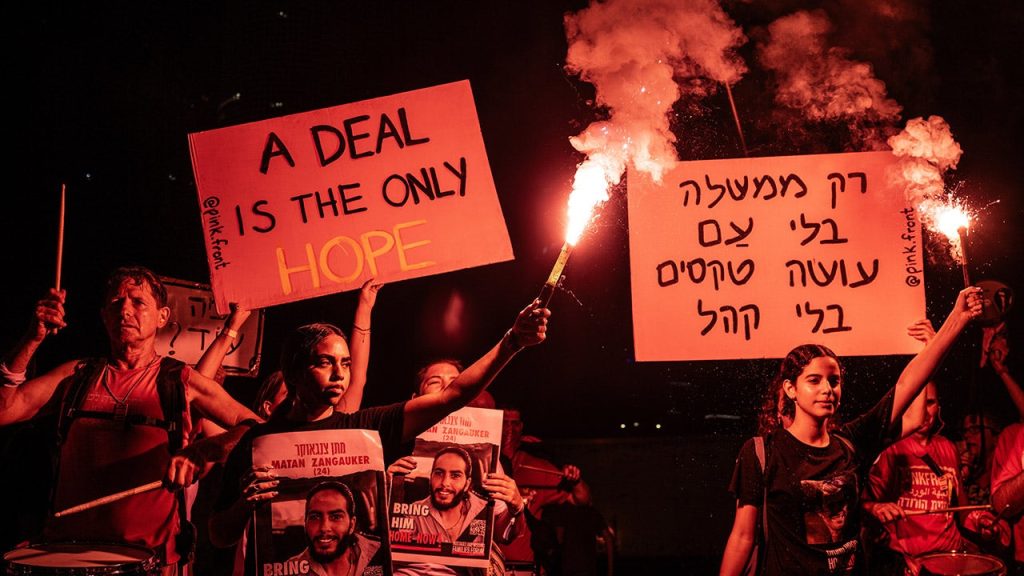Egyptian President Abdel Fattah al-Sisi is urging Israel and Hamas to agree to a two-day cease-fire to secure the release of hostages. However, neither side has agreed to this proposal, which aims to release four Israelis kidnapped by Hamas and an unknown number of Palestinian prisoners. Sisi suggested that if a temporary truce is reached, talks for a permanent cease-fire should continue after 10 days. The proposal coincides with a major meeting in Doha involving CIA Director William Burns, Mossad Chief David Barnea, and Qatari Prime Minister Mohammad Al-Thani.
While the focus of the Doha meeting was to discuss plans for a short-term cease-fire lasting less than a month, details regarding the truce remain unknown. The discussions likely involve a hostage release in exchange for Palestinian prisoners and an increase in humanitarian aid to Gaza. The hope is that a short-term deal could lead to a more permanent agreement, especially following the recent death of former Hamas leader Yahya Sinwar. However, finding a deal acceptable to both Israel and Hamas has proven challenging, as neither side is willing to compromise their security interests in Gaza.
Israeli Prime Minister Benjamin Netanyahu’s office stated that new proposals combining previous ideas have been discussed in Doha, taking into account recent developments in the region. Mediators from Qatar and Egypt will continue to work with Hamas to bridge the gap between the two sides. Netanyahu’s office clarified that no offer for a two-day cease-fire and hostage release has been received, although he would accept such a proposal if made. The fragile humanitarian situation in Gaza has worsened as Israel escalates its offensive operations, leading to civilian casualties and a shortage of essential supplies in refugee camps.
The United Nations has criticized Israel’s recent attacks in northern Gaza, describing the violence as “unbearable” and conducted with little regard for international humanitarian law. The conflict has caused widespread death, injury, and destruction, with civilians trapped under rubble and lacking access to medical care, food, and shelter. Israel has denied impeding humanitarian shipments, arguing that Hamas deliberately embeds itself in civilian areas, endangering Palestinian lives. As tensions continue to escalate, efforts to negotiate a peaceful resolution are ongoing, with discussions focused on a potential cease-fire and the release of hostages.
Overall, the situation in Gaza remains complex and volatile, with international mediators working to broker a temporary truce between Israel and Hamas. Efforts to secure the release of hostages and improve humanitarian conditions in the region are ongoing, although significant challenges remain. The involvement of key stakeholders, including Egypt, Qatar, the United States, and Israel, underscores the importance of finding a peaceful resolution to the conflict and alleviating the suffering of civilians caught in the crossfire. As diplomatic discussions continue, the fate of the hostages and the future of Gaza hang in the balance.















